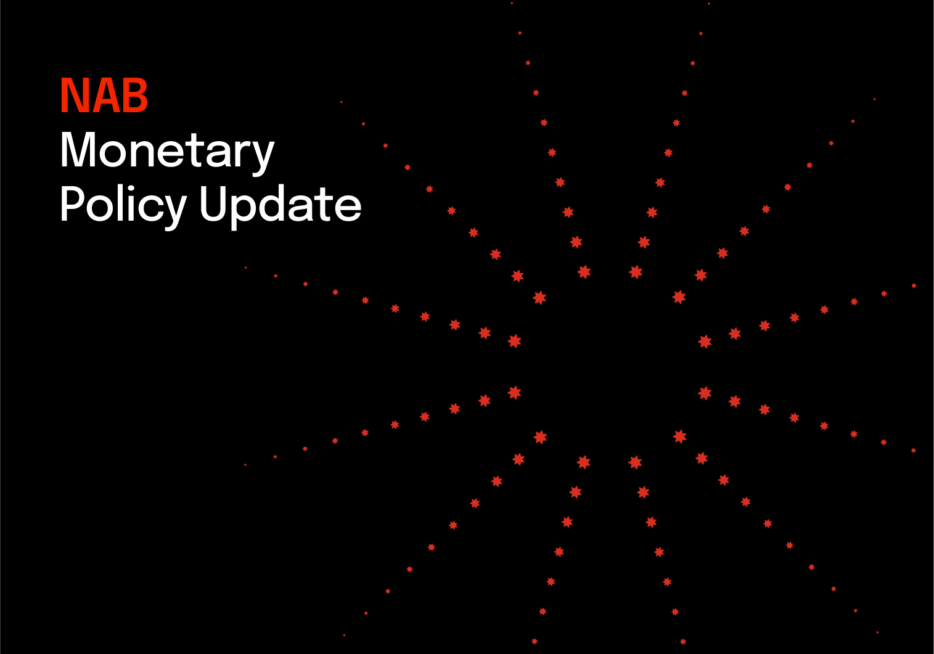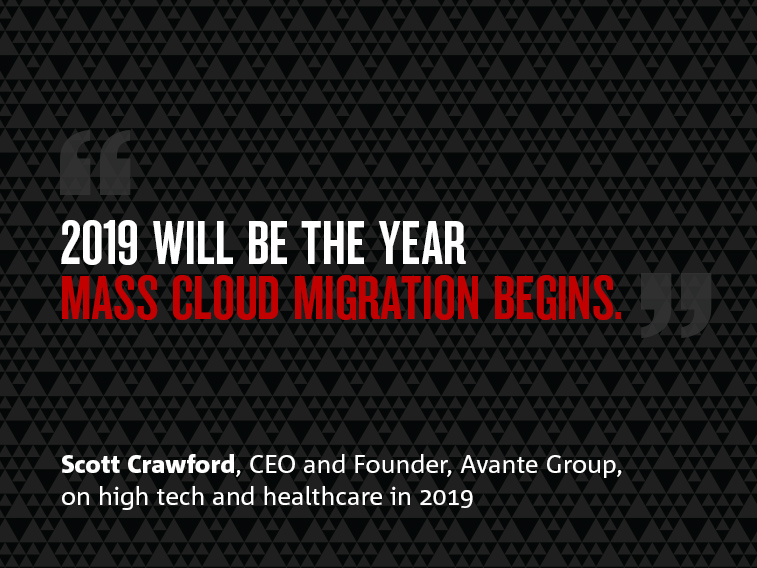RBA surprises with a hold, NAB still sees cuts in August, November and now February


Insight
Avante Medical founder Scott Crawford outlines the high-tech issues of the moment – and the near future – for Australia’s $137 billion healthcare sector.

From pioneering telemedicine initiatives that overcame the tyranny of distance in the 1990s to iPad-driven digital hospitals, Australia’s $137 billion healthcare sector has long been alive to the possibilities technology offers to deliver smarter and better care to patients.
Boutique IT consultancy and long-time NAB client Avante Group knows better than most the benefits healthcare providers can realise from embracing digital technology – and the pitfalls they can encounter in the process.
Founded in 2004 by Scott Crawford, its Avante Medical division provides a suite of ICT services, including application support, cloud hosting and business analytics, to 150 healthcare clients in Australia and abroad. They include single specialist practices, primary care and radiology networks, and major healthcare organisations that employ thousands of clinician partners.
Here, we hear from Crawford on four high-tech issues that he believes will affect the Australian healthcare sector in 2019 and ahead.
Taking the practice into the cloud
IT infrastructure and systems can represent a significant impost for healthcare practices – around $20,000 in set-up costs, on average, and thousands a year to secure, update, back up and support. Unless you’re running in the cloud, in which case you’re looking at zero upfront outlay, around $250 a month in fees, and minimal administration time to achieve the same end.
Embracing an as-a-service computing model can result in significant savings – capital costs are replaced by operational ones and the need to borrow money to buy hardware and software is eliminated. It’s an attractive proposition for practitioners looking to reduce complexity and contain their outgoings, and 2019 is likely to be the year mass migration to the cloud begins in earnest.
The business case is equally compelling for Australia’s larger healthcare providers. As a company, Avante Medical is working with some of Sydney’s biggest hospitals as we move from data centre computing to cloud-based infrastructure. The scale of the exercise is bigger – and so are the efficiencies and savings. If your practice or organisation doesn’t have strategic adoption of cloud technology on the agenda now, chances are it will by the time 2020 rolls around.
Population medicine
Big Data, the analysis of extremely large sets of data for patterns, trends and associations, is making its mark on scores of industries and medicine is about to have its turn. Globally, technology companies like Google are pulling together data sets and working with healthcare providers to extract the insights they contain, to create what’s been termed ‘population medicine’.
In the future, we can expect to see scenarios where an individual might visit their GP, list the symptoms they’re experiencing and have them analysed instantly against those of every individual in their demographic who’s presented in a similar way. It won’t be a substitute for clinical acumen but it will potentially help doctors diagnose conditions faster and more accurately.
Securing the digital health record
My Health Record made plenty of headlines in 2018 and robust discussion of the pros and cons of creating and storing digital health summaries for all Australians, bar those who opt out of the system, is likely to continue into 2019.
The debate has put the issue of data security firmly in the spotlight. Universal roll-out will prompt many practices to overhaul their systems and processes to minimise the possibility of a breach occurring on their watch. That means implementing the latest versions of software, ensuring security patching occurs regularly and backing up patient data securely. The stakes are high – any healthcare provider that experiences a major data breach can expect negative publicity and a steep remediation bill – and some practices may struggle to get up to speed.
Making a case for data interoperability
Data interoperability is hardly a hot subject but it’s an important one. It will become even more so, as the Australian healthcare landscape continues to digitise. To date, little consideration has been given to the way different healthcare systems exchange data and there’s no single standard for doing so. This means raw data can’t be transmitted freely between hospitals, healthcare practices and the My Health Record. In fact, patient information is uploaded to the latter as a PDF report, rather than in its original digital form – hardly a great leap forward!
Avante believes the Australian Government needs to address this issue by legislating on connectivity and information exchange within the sector. Elsewhere in the world there’s been a push for software developers to adhere to something called FHIR – the Fast Healthcare Interoperability Resources standard. The case for adopting this or a similar standard will become increasingly apparent in 2019, as Australian providers continue their journey down the digital path.
© National Australia Bank Limited. ABN 12 004 044 937 AFSL and Australian Credit Licence 230686.